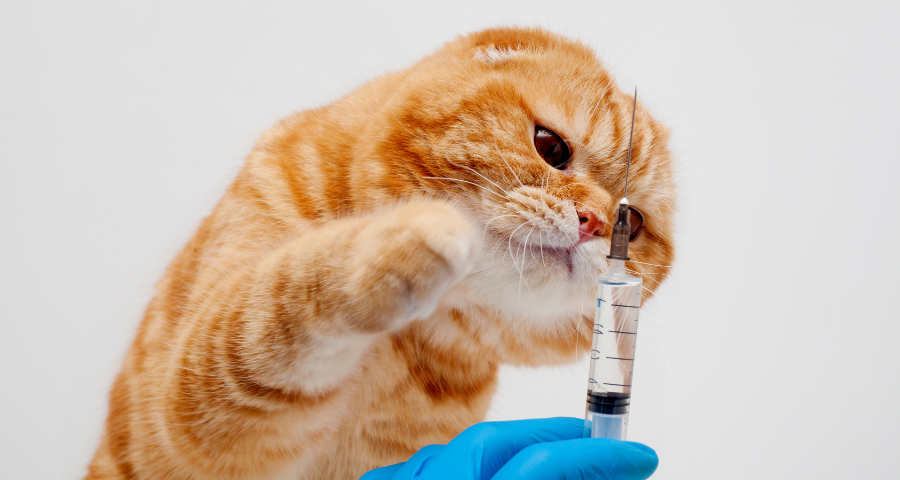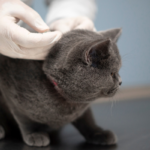With increasing day length and warmer weather, most of us, including our pets, will be enjoying more time spent outdoors. It’s always important to ensure your four-legged friend is up-to-date with routine disease and parasite prevention, but especially so at a time of year when insects are more prevalent and more animals are out and about.
What vaccinations should my pet be getting?
Dogs should be vaccinated, as a minimum, with the C3 vaccination – this protects against parvovirus, distemper and hepatitis. Most dogs also require protection against kennel cough. If you live in an area where leptospirosis is known to occur, it may be recommended for your pet to receive additional vaccination against this.
All cats are recommended to be kept up-to-date with the F3 vaccination – this helps protect them against cat flu and feline panleukopaenia. Depending on your kitty’s lifestyle, they may also need to be vaccinated against FIV (feline immunodeficiency virus) and FeLV (feline leukaemia virus).
Every pup and kitten should receive a primary course of vaccines (usually three separate vaccines done four-to-six weeks apart), followed by their first adult vaccination one year later. From this point, they generally receive annual vaccines with alternating components (as not every component needs to be boosted every year).
Recently there have been cases in Sydney CBD and North Shore of canine leptospirosis; this is a rat borne infection that causes acute kidney infection and,in most cases, can be fatal for dogs.
Leptospirosis can also be transmitted from dogs to humans. The current recommendations are that any dogs living in or travelling within a 10km radius of Sydney CBD should be vaccinated. Those who live outside of that radius should be vaccinated if they have a high chance of coming in contact with rats, rat urine or stagnant bodies of water. The vaccine can be added to your dog’s regular c5 annual vaccination.
What parasite prevention should I give my pet?
There are lots of product options for parasite control in dogs and cats, and generally at least two products need to be used per pet for a thorough parasite prevention routine.
Any cat or dog going outdoors should regularly receive products to protect against ticks, fleas and intestinal worms. Dogs should also be on routine heartworm prevention, but this is optional in cats, as they are not the preferred host for heartworm, so are less susceptible.
For puppies and kittens, we recommend an intestinal all-wormer every two weeks up until 12 weeks old, and then continuing worming monthly until six months old. From this point, your pet should be wormed every three months. In rural areas where pets have access to livestock, it may be recommended to give your pet a tapeworm treatment every month in-between quarterly all-wormer doses.
Flea and tick treatments can be covered by combination products. For dogs, there are a range of effective preventative products, including a variety of chews that last between one and three months, veterinary-strength medicated collars or topical products that last up to six months. For cats, there are topical products that last up to three months.
For heartworm prevention in dogs, you may consider an annual injection administered by one of our vets (which can be synced up with your pet’s annual check and vaccination) or a monthly chew or tablet.
As a general rule, pets should be seen for an annual vet check, where we can assess your cat or dog’s general health and discuss which vaccines are required each year to maintain their protection. At this time, we can also discuss the best options for thorough parasite prevention based on your pet’s requirements.
If you’re unsure whether your pet is properly protected, seek advice from our friendly team!





